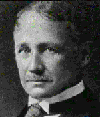

People are not mere extensions to machines or horsepower to be switched on and off. A worker's performance may be better than a machine's capability - yet a machine may outstrip the human being for many tasks.
People can behurt/injured physically by operating environments or trapped socially and psychologically in them/by them. How operational systems are designed and the jobs and performance relationships within them are of great operational, economic and social importance. In this context then work study is
In the Path of F. W. Taylor
Method study and work measurement are two principal activities of work study which originated in the work of F. W. Taylor (see Rose: 1978). FW's "scientific management" imperatives are:
Methods study
- is an analysis of ways of doing work. The memonic SREDIM (a common-sense
heuristic or general problem-solving strategy) represents the method study
stages
However -- having said this - the scope for work study definition and evaluation is useful for operations managers in a general sense. Such roles require data on operational capacities and effectiveness and the use of time and resources. Methods need regular re-evaluation. Some may have evolved and changed over time to become disjointed, patch works that no longer fully serve requirements. The case may need to be put for more staff or new methods and equipment. Such arguments call for data and measurement.
Efficiency Indices
Using data on measured work, unmeasured work and idle time we can attempt to derive effectiveness indices. Constable and New exemplify efficiency and effectiveness indices
Work study/industrial engineers need time data to plan and evaluate production/transformation processes. Rewards systems need such data for performance related bonuses. Cost calculations need to incorporate operative and machine job times Costing systems reference work study data. Work study data contributes to: